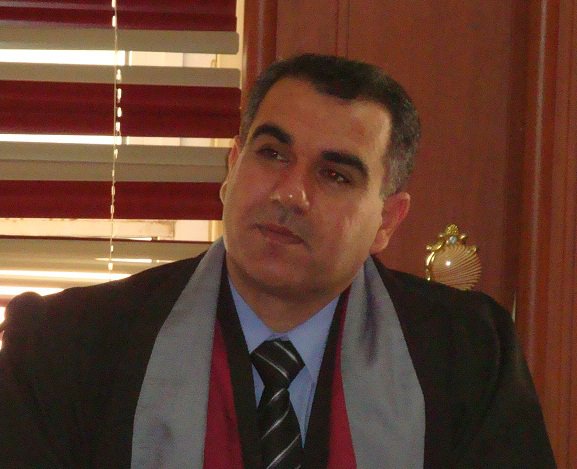By: Abdelrahman J. Othman
With a quick search among the historical books in any library, one finds out that the greater part of human history is full of records of the devastating wars and the accompanying destructions of the human hostilities against their fellow beings. This tells us that humans are highly subjects to the infections of the virus of war and at the same time have a very weak immunization system against it. What is important for us now is how to make use of our previous mistakes and learn lessons from our misfortunes.
THESIS:
This thesis shows us how Wilfred Owen, in a humanitarian aspect, reacted to the critical situation caused by World War I. In the abstract of the thesis, Mr Abdelrahman hopes that ‘the experience of the people who had been through the catastrophic and devastating effects of war at the onset of the twentieth century might be useful for us in sparing the new generation in our region.’
The first chapter of the thesis is about the basic ideas of the thesis which include: the human belief (its progress from the beginning until now) and war. Then the relationship between ‘war’ and ‘poetry’ is tackled.
Chapter two deals with some examples from Owen’s poetry on humanitarian concerns of war. Only short poems are selected so as to avoid the bulkiness of the thesis. Then the effects of war are discussed. Bad conditions of soldiers and the use of poisonous gas are tackled at the end of the chapter.
Chapter three focuses on those poems whose main theme is ‘the aftermath of war.’ Here, the effects of war on both soldiers and civilians are discussed.
Chapter four shows the importance of Owen’s poetry, his pity for humanity and his truthfulness. These things brought him many followers after his death.
Wilfred Owen was forced to be a soldier when he was very young. He said that he pitied poetry because, as he explained, poetry was distilled by war. Owen also acknowledges that humans act inhumanly in battlefields. He dedicated all his efforts to awake the humanitarian sense against war. Although he was not the only poet to write about war yet, he was prominent among other poets.
Owen’s war poems have two main subjects: the catastrophes of war, and how to end or minimize the effects of war. Because he had experienced war himself, he was able to describe the psychological and mental wounds of people realistically. One week before the armistice, Owen was killed in the war. So, in his poetry, he only talked about the sufferings of the soldiers whom he fought alongside. He did not witness the aftermath of the war on civilians, so he didn’t talk about them in his poetry. But by observing the effects of war on armed soldiers, one estimate how these effects were on unarmed civilians.
Owen’s poetry is a good proof that poetry can make things happen and surely effective poems can make differences in people’s perception of ideas.
In the end of his conclusion, Mr Abdulrahman pleads humanitarian thinkers to campaign against the governments who race to invent and obtain more destructive weapons. And he also wants them to gather as much as supporters to win the case. ‘The different components of society,’ he writes ‘like literary people, scientists, civil societies, sports people and the rest should participate in this noble mission.’ He also suggests that war poems to be incorporated into the school curriculum to enable the new generations to know about the reality of war.
POFILE:

- Mr Abdelrahman J. Othman received his Bachelors degree from English Department/ College of Languages/Salahaddin University in 1994.
- He accomplished his Masters again from English Department/The College of Languages/Salahaddin University in 2011.
- Currently, he teaches Poetry lesson at the English Department/Faculty of Arts/Soran University.
*To contact the author of the thesis, please write to the following email:
This email address is being protected from spambots. You need JavaScript enabled to view it.
Prepared by: Karwan Fayzi Dri